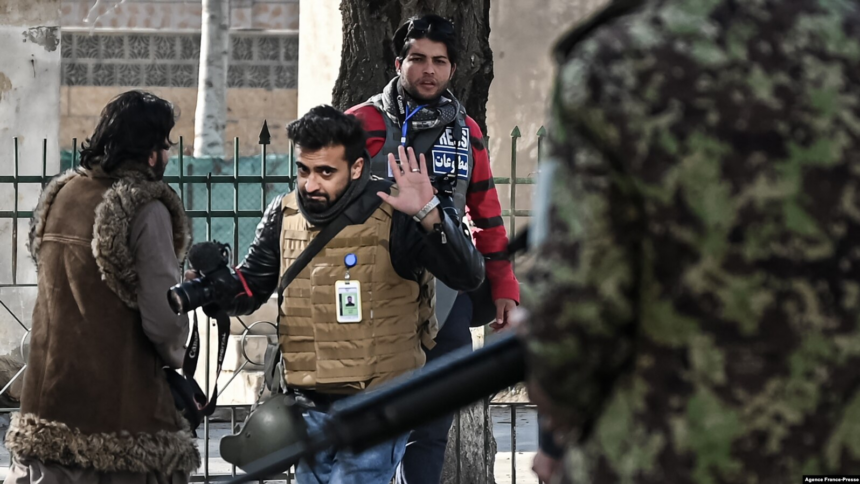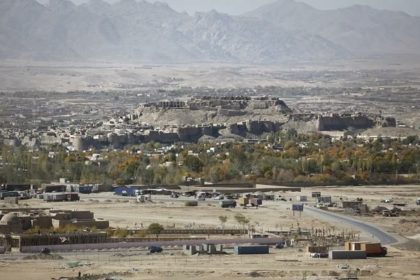RASC News Agency: On the eve of World Press Freedom Day, a wave of international concern has surged over the intensifying assault on press freedom in Afghanistan under Taliban rule. The United Nations and a range of high-profile global figures have issued urgent statements decrying the systematic repression of independent journalism and calling for decisive action to protect what remains of the country’s embattled media landscape. Since the Taliban’s forceful return to power in August 2021, Afghanistan’s once-vibrant media sector has descended into one of the darkest periods in its history. Journalists face an escalating barrage of censorship, harassment, arbitrary arrests, and intimidation, while female journalists, in particular, endure an added layer of gender-based persecution.
According to a new report released by the United Nations Assistance Mission in Afghanistan (UNAMA), at least 215 violations of press freedom were documented over the past year alone. These include 175 instances of threats and 40 arrests of journalists, with 10 media workers currently languishing in Taliban prisons. Seven of these have been sentenced to prison terms ranging from seven months to three years following opaque trials that lacked due process. Beyond the physical threats, the economic collapse engineered by Taliban misrule has led to the closure of dozens of independent media outlets. Advertising revenue has dried up, foreign support has diminished, and financial instability has become a crippling obstacle for those who remain committed to reporting the truth. The response from international bodies has been swift and damning.
Richard Bennett, the UN Special Rapporteur on the situation of human rights in Afghanistan, issued a forceful video message urging the Taliban to immediately release all detained journalists. “Freedom of expression is the cornerstone of human rights,” he declared. “Its suppression endangers all other freedoms and rights.” UN Secretary-General Antonio Guterres echoed this sentiment in a separate message marking World Press Freedom Day. “The freedom of the people depends on the freedom of the press,” Guterres emphasized. “Journalists must be allowed to report freely and without fear.”
Roza Otunbayeva, the UN Secretary-General’s Special Representative for Afghanistan and head of UNAMA, warned that the erosion of independent media in Afghanistan is eroding public trust and government accountability. “A pluralistic and resilient media sector is essential for transparency, civic trust, and good governance,” she stated. “Yet under the Taliban, we are witnessing a deliberate dismantling of these institutions.” UNAMA, in a formal statement, expressed solidarity with Afghanistan’s journalists and sounded the alarm over Taliban-imposed restrictions and the worsening economic crisis, which together pose a serious threat to the Afghanistani people’s right to access critical information.
The Taliban’s relentless crackdown on freedom of expression has triggered a mass exodus of journalists, forced countless others into self-censorship, and plunged the country’s media into a state of paralysis. The regime’s draconian restrictions are not merely administrative they are part of a calculated strategy to silence dissent, obscure human rights abuses, and manufacture a narrative of legitimacy that starkly contrasts with the reality on the ground. Women journalists, in particular, have borne the brunt of this repression. Denied the right to work, surveilled, and threatened with violence, many have fled or abandoned their profession altogether. Their absence from the public sphere is a chilling testament to the Taliban’s war on gender equality and free expression.
As the world commemorates World Press Freedom Day, Afghanistan stands as a tragic reminder of what happens when authoritarian regimes unchecked and emboldened wage war on the truth. The Taliban’s suppression of the press is not merely a domestic issue; it is a global affront to the principles of open society, democracy, and human dignity. The international community must move beyond rhetoric. Targeted sanctions, expanded asylum protections for journalists, and sustained financial support for independent Afghanistani media in exile are essential tools to resist the Taliban’s media blackout.
In this defining moment, the silence of the world would be complicity. Afghanistan’s journalists are not only fighting for their profession they are fighting for the soul of their country.






